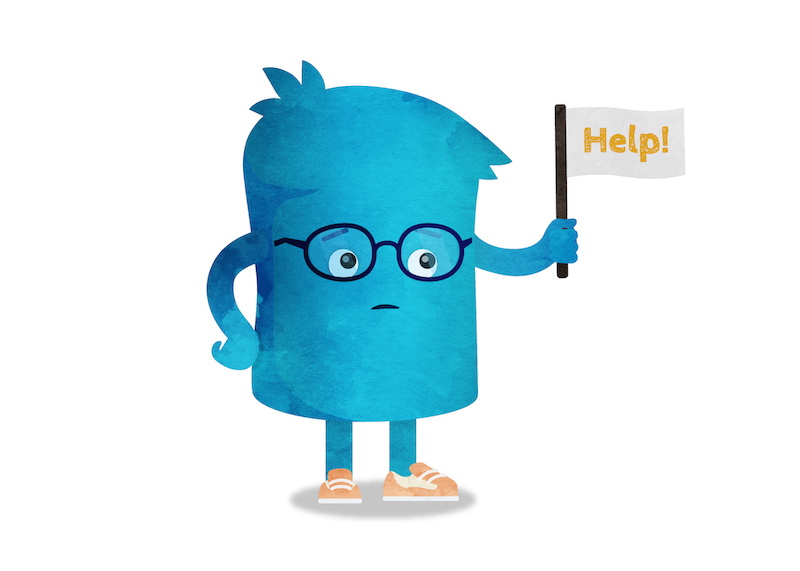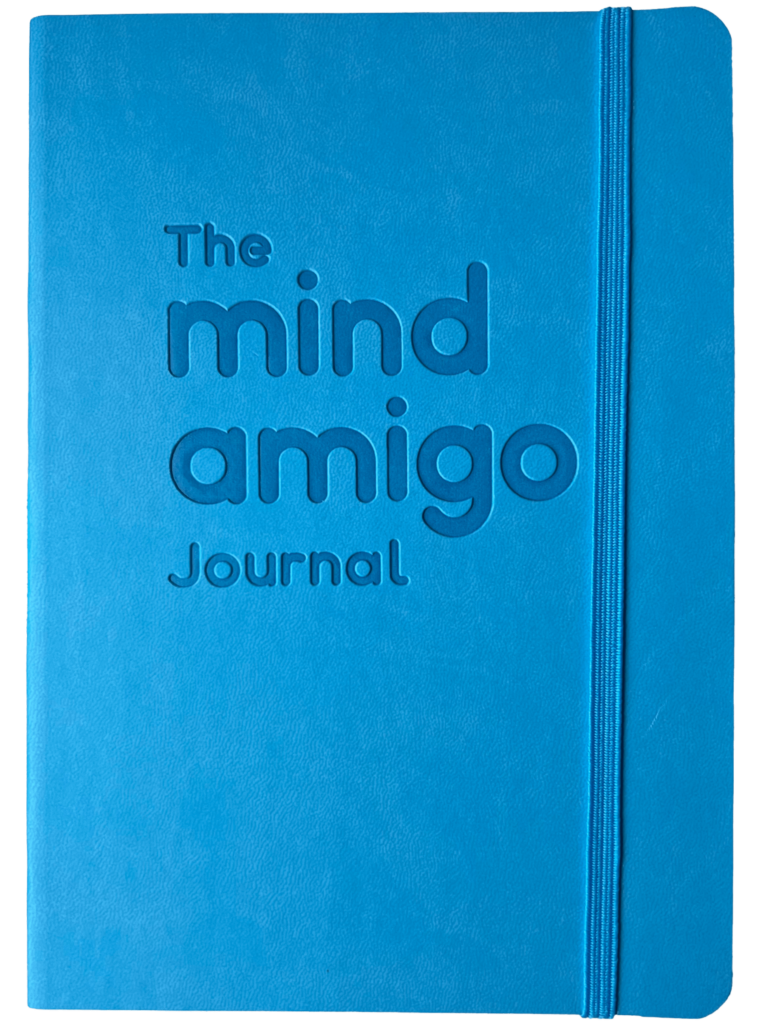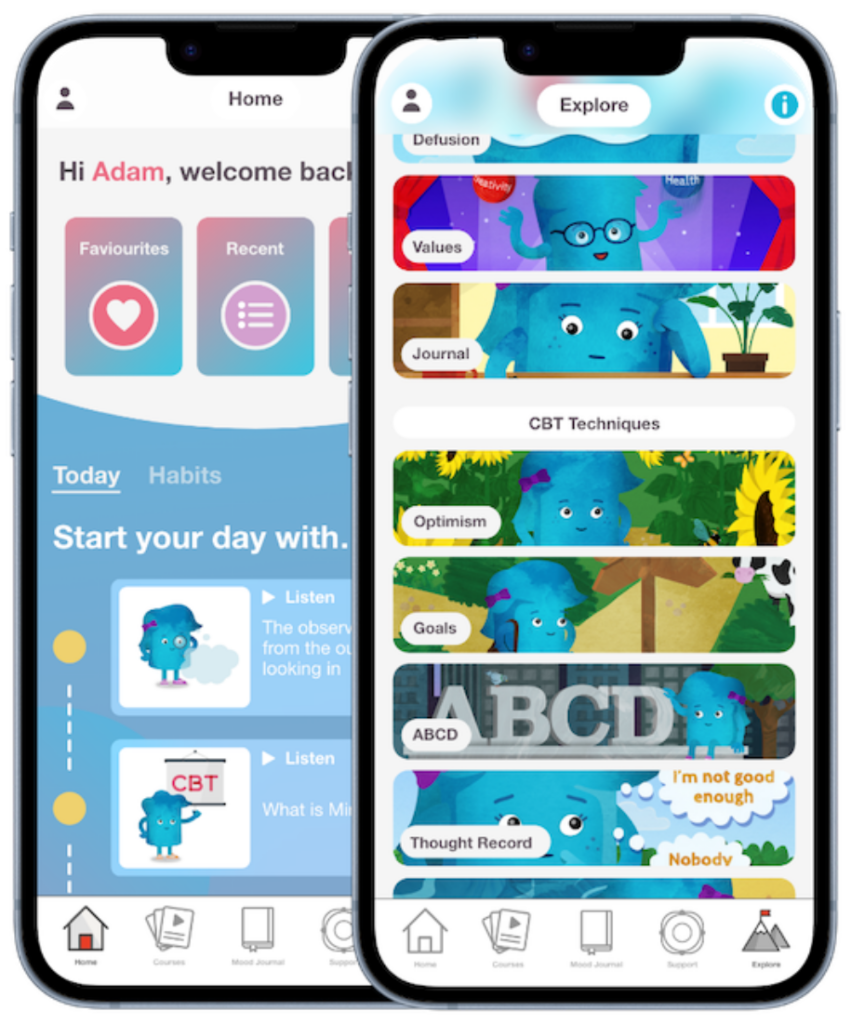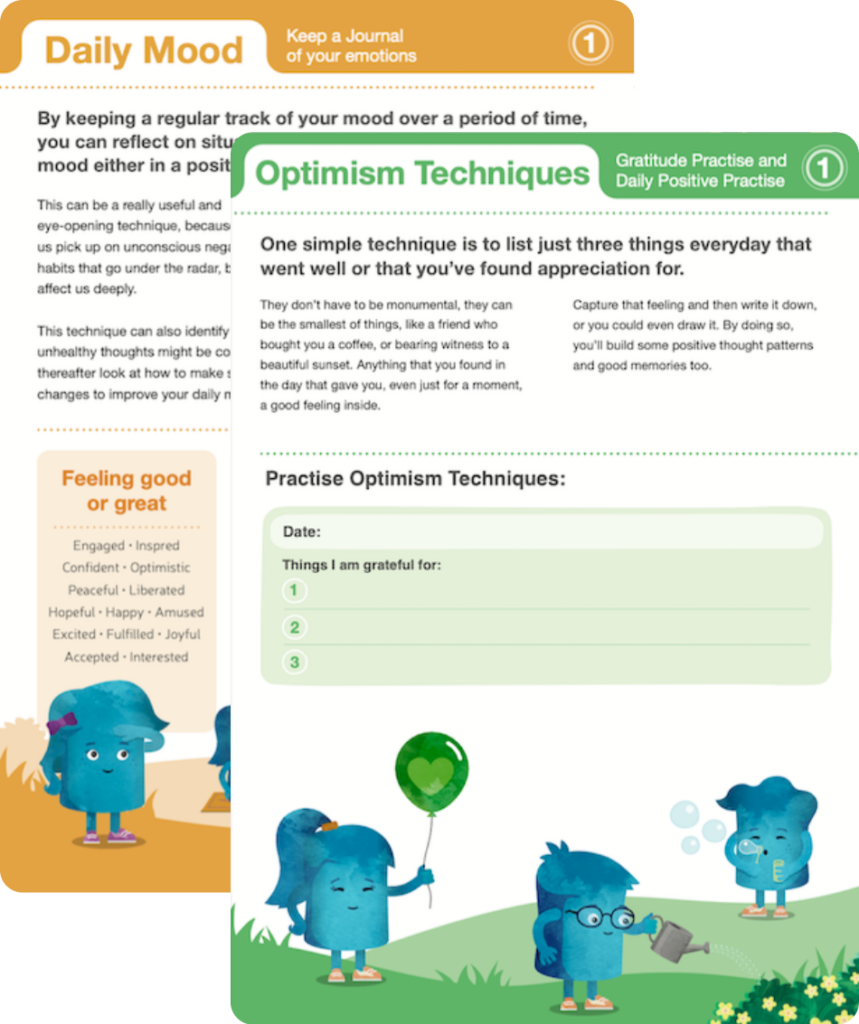Why do I get anxious?
Before address the ‘why’ question, it’s important to not blame yourself for having anxiety. Because in that question, we might be thinking why do I get so anxious and other people don’t? What’s wrong with me?
Well the first thing to consider is anxiety is incredibly common with surveys suggesting around 1 in 14 people worldwide are estimated to be suffering with a diagnosable anxiety disorder. It’s around 1 in 5 in the UK and US.
Now these figures are for those that actually have a diagnosable anxiety disorder, but we also have to be clear that anxiety is a normal human experience that we all get from time to time. Millions of us experience it, but there is a tipping point and when it becomes intrusive and upsetting to us that’s when we need to address it and not blame ourselves. You will know the symptoms all too well – a racing heart, sweaty palms, a feeling of being out of control and unsettled, a knotted stomach and ruminating over the same things. And where does this lead us? We end up unable to get perspective and are caught up and become enmeshed with these anxious emotions.
It’s very easy for us to judge ourselves for it, perhaps believing that we’re weak or we’re flawed in some way because of it, but always remember, the way you feel happens to a lot of us.
So with this being said, a good first step in being able to deal with it is to understand why we experience it in the first place. It’s the bit that is often skipped over, but knowing the causes can be incredibly enlightening and massively important in getting over it.
And the thing about anxiety is that there can be many contributing factors. Everybody’s experience of it is different, but there are a few common causes that we can touch on here the most fundamental of which is our “flight or fight” response which has evolved in over thousands of years. In reality, this evolved response ends up being triggered for situations that are not life and death. Stress hormones like adrenaline and cortisol are generated for situations which are in the past or which do not place us in danger now.
One of them can be due to traumatic experiences that make us feel more unsafe and uncertain in the world. Perhaps this trauma was caused by bullying or abuse. There’s also factors such as growing up in poverty or having a difficult family life as a child. How were you treated as a child? Was there general chat and conversation to resolve issues or have you lived with never feeling good enough or having fearful or defensive or aggressive actions in response to situations?
Our family life, especially as a child can have a huge impact on how we see and engage with the world when we get older. It can be difficult growing up in dysfunctional or broken family’s which can cause a lot of turmoil in our lives.
We can also look at societal factors, with pressures from social media, and the expectations to do well and be perfect. With social media for instance, we see the rich social lives and achievements of others, and as human beings, we find it difficult not to have an emotional reaction to that. A feeling of not being good enough and all of this creates a huge amount of tension. This can be especially so if we are placing ourselves under pressure to emulate these people or friends of ours.
At the end of the day, we are social beings and we’re living in a world that is more self centred and egotistical. It’s incredibly competitive as we compete for status, fame, beauty and money for instance.
There’s also a lot of multitasking involved in today’s modern world especially with our more stressful working lives. The expectations to perform and to meet deadlines, whilst doing many other things, is proven to cause anxiety.
So if you think about work,, we’re not usually just doing the singular thing, but we might be making call, responding to emails, checking social media and then having to contend with home life.
So how does this actually generate anxiety then?
We have a lot to think about in the day with many immediate situations requiring our attention, and we know from the research done on multitasking, that it is prone to make us more anxious. Yes, this anxiety can be quite positive and give us a real buzz as we problem solve. On the other hand, too many tasks or situations we feel are out of our control or we cannot work out how to deal with, will inevitably generate anxiety.
These situations, real or imagined can then be magnified in our minds, we lose perspective and can end up catastrophising. This can led to panic and from there we can, over time end up avoiding situations which are based on a warped and exaggerated interpretation we have of the matter in hand.
It also has to be said that if we end up with different situations, there is often a time lag between thinking of something and having a physical reaction. In this way some people can feel anxious and not know why. It all gets mixed up and we can’t disentangle situations and thoughts. In fact, if asked we might not even be able to say why we are anxious.
So there are many things in life that can make us more prone to feeling anxious, but again, it’s important to remember that it’s part of what it means to be human. It’s an evolved emotion that comes along with us and is not something that we can eradicate from our lives.
The problem is we’re never taught how to deal with anxiety in a positive way. We grow up believing that anxiety is an emotion that we need to suppress and not express.
And believing we’re living in a world where everything is very convenient and instant, when anxiety does come around we desperately try to get rid of it believing that’s the only way we can get on with our lives.
We become intolerant of feeling uncomfortable and so our inclination is that it has to be immediately fixed. But there is another way.
Instead of that constant battle that we wage in our mind trying to get rid of anxiety, we learn to make peace with it.
And the reason why we do this is because it’s the battle with our mind as we desperately try to get rid of difficult thoughts and emotions, that keeps us hooked to them. In other words, when we fight anxiety, it fights back.
So by making peace with anxiety, we learn to accept what we can’t control in the moment. We have compassion for ourselves and realise that anxiety is a normal human emotion, and with that we allow those difficult thoughts and emotions to play out rather than trying to shut them away, because it will always be a losing battle.
So of course always look to be kind to yourself. You might have significant issues to deal with or are worn down with the same anxiety at the same type of situation. Why me?
So as well as making peace with our anxiety, de stress, deep breaths, listen to some music, listen to some relaxing sounds, make a list of the issues you have, prioritise them and tick them off when done. I other words, get some distance and get it in perspective. Finally, get some exercise. Exercising when stressed? Yes! Do it!
Anything else? Yes, there is. Check out a healthy diet – food and mood. Cut down on alcohol if that’s a coping mechanism. And lastly talk to someone you can confide in like a family member or a friend. Get it out there because shutting it away, only makes us feel more isolated and alone.






